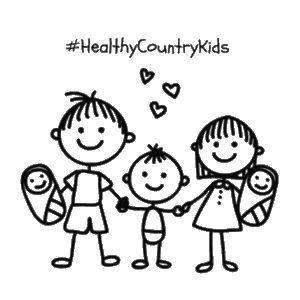Changing Sleep and Feeding Cycles (PDF Version)
The first few months of your baby’s life may seem like a bit of a blur of feeding, burping, nappies and sleeping. Generally newborns will sleep very lightly, spending half of their sleep time in active sleep and can be wriggly and noisy! Newborns have not learnt to sleep when it’s dark and usually learn this rhythm when they are around 6 weeks old, with lots of exposure to light and play during the day and providing a dim, quiet environment at night.
From around 3 months many babies start to ‘sleep through’ which means sleeping for around 5-6 hours at a stretch at night. But don’t worry if your baby is not doing this – they are all different. Feeding can also change in that babies can start to have an increased length of time between their breast or bottle feed. Read on for some tips about how to support your baby as they grow for sleeping and feeding.
Sleep patterns from 3 – 6 months
As babies move out of the newborn stage, you may notice that they start to develop a rhythm of sleeping longer periods at night. Your baby will start to have more consistent regular day sleeps and their tired cues may be more apparent. At this age they may start to move to a pattern of 2 – 3 daytime sleeps per day of up to 2 hours each or still be sleeping 4 times per day for a shorter length of time.
Often we are not only guided by their tiring cues but also how long they’ve been awake for during the day. As a general guide:
· Newborns to 3 month old babies are likely to be overtired after 1 to 1.5 hours of awake time
· A 3 – 6 month old baby will be overtired after 1.5 to 2.5 hours of awake time
· A 6 – 12 month old baby will be overtired after 2 to 3 hours of awake time
Having a baby who struggles to sleep during the day or night can be very emotionally and physically draining. Seek support when your baby’s sleep or lack of sleep is becoming unmanageable so you can get help to guide your baby into developing some more consistent sleep patterns. Talk to your Child Health Nurse, GP or contact Ngala Parenting Line or Country Families @ Ngala.
Watch and wonder:
It’s really important to keep up with what’s happening with your baby as they grow and develop. Check out the links below to find out what is usual for your baby’s age and even read ahead so you can anticipate their needs. Remember these are general guides and all babies develop at different times. Spend time just being with your baby to watch for their cues and interactions, to really get to know them. Even though you haven’t necessarily been a parent before, you and your partner are the experts of your baby and know them the best. Follow your baby’s cues, seek out research based information and allow yourself time to adapt as your baby grows and develops.
Feeding your baby:
From around 3 months you will find that you and your partner have an increased confidence around feeding your baby and following their cues for hunger. They may now feed less frequently but they still need to have around 6 – 8 feeds in a 24 hour period. It’s still very important to ensure that your baby has lots of wet nappies. They will generally do a poo every day although they may start to skip a day or 2 or sometimes even longer. Breastfed baby’s stools should be soft and slightly runny and formula-fed babies stools tend to be a little firmer but should not be hard or formed.
It is still really normal for your baby to wake for feeds overnight but they may be able to sleep longer between feeds. They may have a more consistent pattern of waking so by now you might be able to develop some ‘shifts’ with your partner for overnight support – eg feeding your baby or settling them after your partner has fed them. Your baby may be more receptive to other strategies to settle them back to sleep other than feeding like rocking or patting so it’s a great time for dads to step in.
Supporting your baby to finish their feeds fully during this time helps your baby feel fuller and manage a longer period between feeds. This can help your baby in establishing a rhythm for feeding, awake time and sleep.
When Does My Baby Need Solids?
– For about the first 6 months of life babies use iron stored in their bodies from when they were in the womb.
– Introducing solids from around 6 months allows babies to get the iron that they can’t get from breastmilk or formula alone.
– Introducing solids is also important for helping babies to learn to eat, giving them experience of new tastes and textures from a range of foods.
– It also develops their teeth and jaws and builds other skills that they’ll need later for language development.
Signs that it’s time for solids
* Good head/neck control and can sit upright when supported.
* Shows an interest in food.
* Reaches out for food.
* Opens their mouth when you offer them a spoon.
“Fathers, like mothers, are not born. Men grow into fathers and fathering is a very important stage in their development.” –David Gottesman
Links to resources:
Sleep and Feeding Activity Guide
For parenting support and information contact [email protected] or Ngala Parenting Line
Country Dad’s SMS Service is provided by Ngala and supported by WA Country Health.


